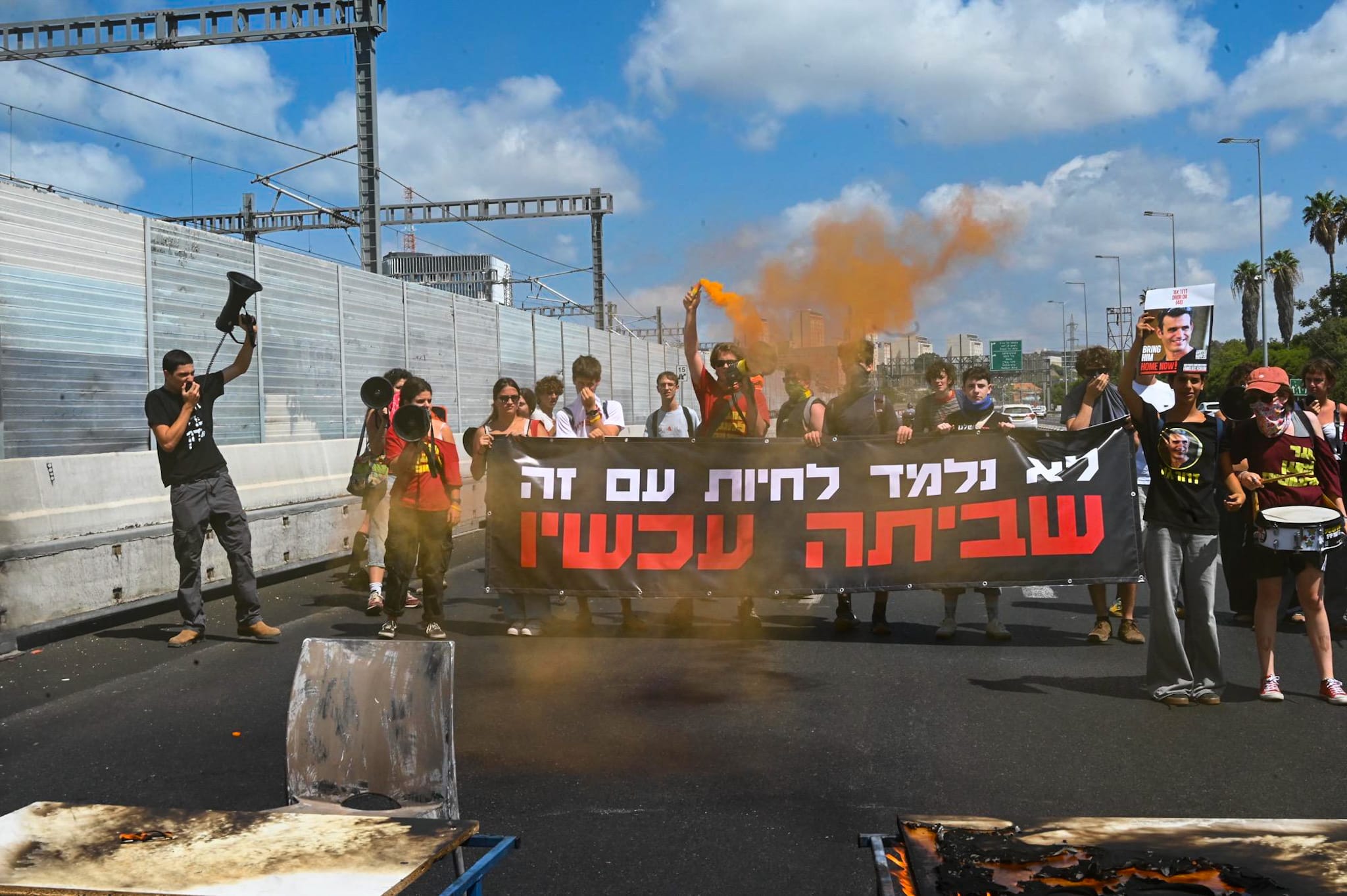



Dozens of teenage protesters blocked traffic on Tel Aviv’s Ayalon Highway and set fire to classroom desks Sunday morning, demanding a general strike ahead of the start of the academic year.
Demonstrators held a banner reading: “We will not learn to live with this. Strike now!” as smoke billowed from the three burning desks, bringing most cars to a halt on the highway.
Police arrested two protesters, a 17-year-old boy and a 35-year-old woman, on suspicion of disorderly conduct. They were freed in the afternoon from the police station on the condition that they steer clear of unlawful protests for the next two weeks.
Officers also detained around 20 high school demonstrators during the protest, releasing them on the spot after taking down their details, said lawyer Gonen Ben-Yitzhak, who does pro bono work for detained anti-government activists.
The protest was held a day before the start of the new academic year, which students from dozens of high schools across the country have pledged to boycott, refusing to return to classes Monday morning in light of the continuation of the Gaza war and the government’s perceived foot-dragging in hostage negotiations.
“We are not willing to learn to live in a world in which the hostages are murdered in Hamas tunnels and the Israeli government does not even bother to discuss the deal on the table, and therefore we will not allow the school year to begin as usual,” the students said in a statement.
“Today we are high school students, but in a year or two we will all be in [military] uniform,” the teens continued. “We want, and need, to know that when we go to the front, our country will stand behind us and uphold the moral and ethical contract on which we were educated.”
According to Haaretz, students from 45 high schools across the country have vowed to strike on the first day of classes.
One of the founders of the movement, 12th grader Hanoch Cohen, told Haaretz that the initiative gained massive traction after he announced with friends that they would boycott the first day of classes at their school in the Hefer Valley Regional Council.
“Requests came to us from students all over the country,” he told the outlet, claiming that over the span of five days, some 500 people joined the youth protest movement’s first WhatsApp group.
Meanwhile, the National Students and Youth Council, which represents students before the government, came out against the strike and instead urged a less drastic form of protest — pausing for 50 minutes on the first day of classes.
“We believe that after six years of instability, not to open this year as well is not the solution,” said council spokesman Yuval Degani. She argued that striking for a single day “won’t have the effect we desire.”
